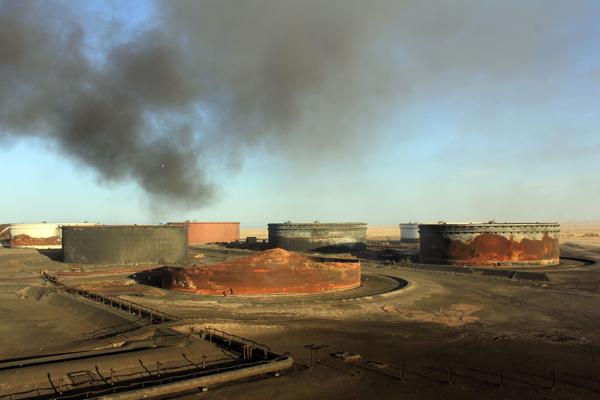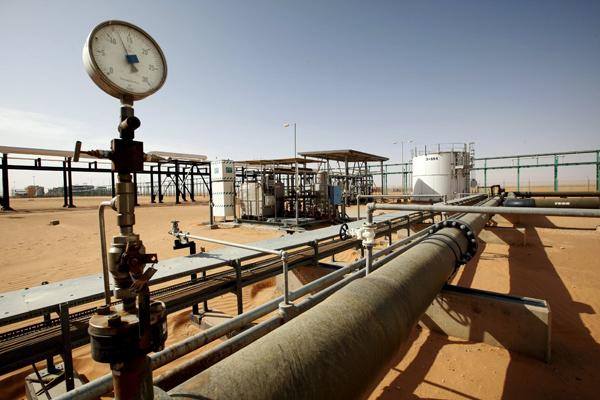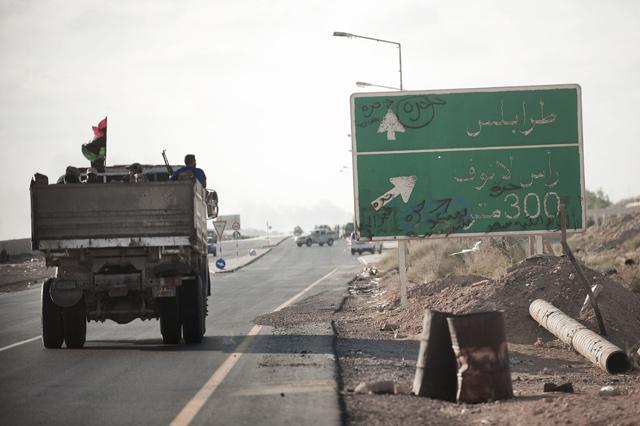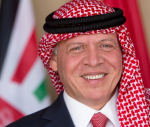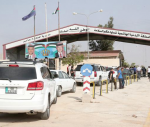You are here
East Libyan forces pledge move to ‘secure’ oil assets
By Reuters - Aug 15,2016 - Last updated at Aug 15,2016
MARJ, Libya — Forces loyal to Libya's eastern government will secure major oil ports and fields to "protect" them, a senior commander said, signalling possible conflict with a UN-backed administration in Tripoli which is taking steps to restart crude production.
Abdulrazak Al Nazhuri, chief-of-staff for General Khalifa Haftar's Libyan National Army (LNA), also restated a threat to target oil tankers that do not have permission from eastern authorities to dock.
Since a 2011 revolt against Muammar Qadhafi, Libya's oil sector has been steadily disrupted by competing governments and their armed allies, as well as by militant attacks.
Haftar's LNA has mobilised around eastern oil ports and fields and their former allies, the Petroleum Facilities Guard (PFG) in recent weeks, as the PFG agreed with the UN backed Government of National Accord (GNA) to stop blockading the facilities.
"We will enter the ports of Zueitina and Es Sider and Ras Lanuf," Nazhuri told Reuters in an interview at a military base in the eastern town of Marj.
The three ports are occupied by the PFG, which signed the deal with the GNA at the end of last month to enable the Tripoli authorities to restart production, a major step towards asserting its control across the country.
Last week one LNA brigade entered Zueitina in a show of force, though it stopped short of the oil port controlled by the PFG. A resident and a security source said LNA troops were still stationed there on Monday. There was no immediate sign of major military movement near it or the other ports.
"Our entry into the ports is to protect them, not to occupy them or to be substitutes for the mercenaries or thieves who preceded us," Nazhuri said.
Battle for Sirte
Haftar and his allies in the east oppose the GNA, saying it is empowering armed groups in the western city of Misrata and Tripoli.
Misrata brigades aligned with the GNA have largely driven Daesh from their former North African stronghold of Sirte, raising fears splits between eastern and western factions could deepen, reigniting a civil conflict that erupted in 2014.
Sirte lies in the centre of Libya's coastline, just 180km west of Es Sider and close to other key oil fields and installations.
Haftar's LNA initially said it would lead the campaign against Daesh in Sirte, but mobilised around eastern oil ports and fields instead.
Partly because of the blockades at the eastern ports, Libya’s oil production is currently about 200,000 barrels per day (bpd), a fraction of the 1.6 million bpd the OPEC member was producing before the 2011 uprising toppled Qadhafi.
The agreement with Jathran was part of efforts to revive output, ease a financial crisis, and bolster the fortunes of the GNA, which has been struggling to impose its authority.
But the deal was controversial, with the National Oil Corporation (NOC) in Tripoli warning that the payments to Jathran’s forces could set a dangerous precedent.
The NOC office in Benghazi, which is loyal to the eastern government and parliament but is meant to be reunifying with the Tripoli branch, also spoke out against the deal, adding to uncertainty over whether exports could resume.
“We have said that in the event that permission is not sought from the National [Oil] Corporation that answers to the [eastern] parliament, we will target the ships with our air force as we deem them militias or smugglers,” said Nazhuri.
“The goal is not to threaten any nation but to protect the Libyan people’s assets.”
All desert oil fields in the east of the country are under the control of Haftar’s forces, Nazhuri said.
Nazhuri also defended a decision last week to replace the municipal council in Benghazi with a security official, which raised concerns of growing military control in the east.
He said the LNA had intervened at popular request because “the council was internally split and not offering anything for citizens”, seeking to manage the situation until the liberation of Benghazi, “not a return to military rule”.
For the past two years Haftar has been waging a military campaign in Benghazi against a coalition of Islamists and other opponents, including Daesh and Al Qaeda-linked militants.
The LNA has repeatedly announced that Benghazi’s “liberation” is imminent. It has made big gains in recent months but some areas remain outside its control.
Related Articles
BENGHAZI, Libya — Forces loyal to eastern Libyan commander Khalifa Haftar on Sunday seized at least two key oil ports from a rival force loy
LONDON/TRIPOLI — Libya's National Oil Corporation (NOC) has ambitious plans to restore output to pre-2011 levels after years of violence and
BENGHAZI/VIENNA — East Libyan forces said on Thursday they had retaken the shuttered oil ports of Es Sider and Ras Lanuf, hours after clashe


